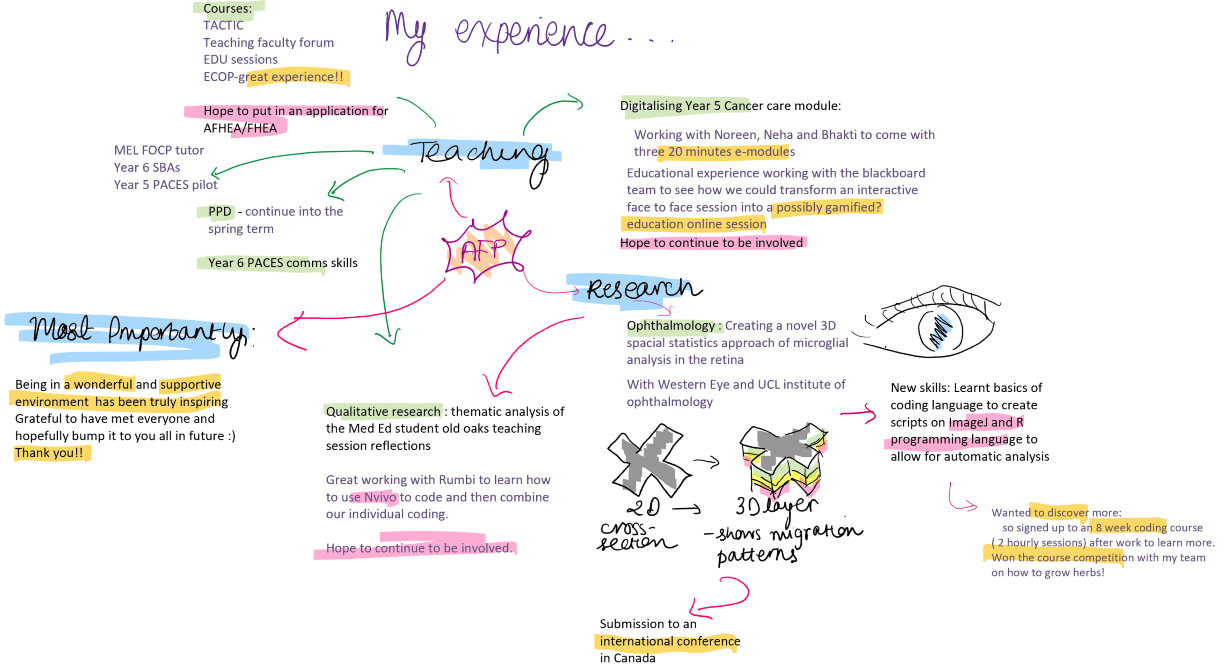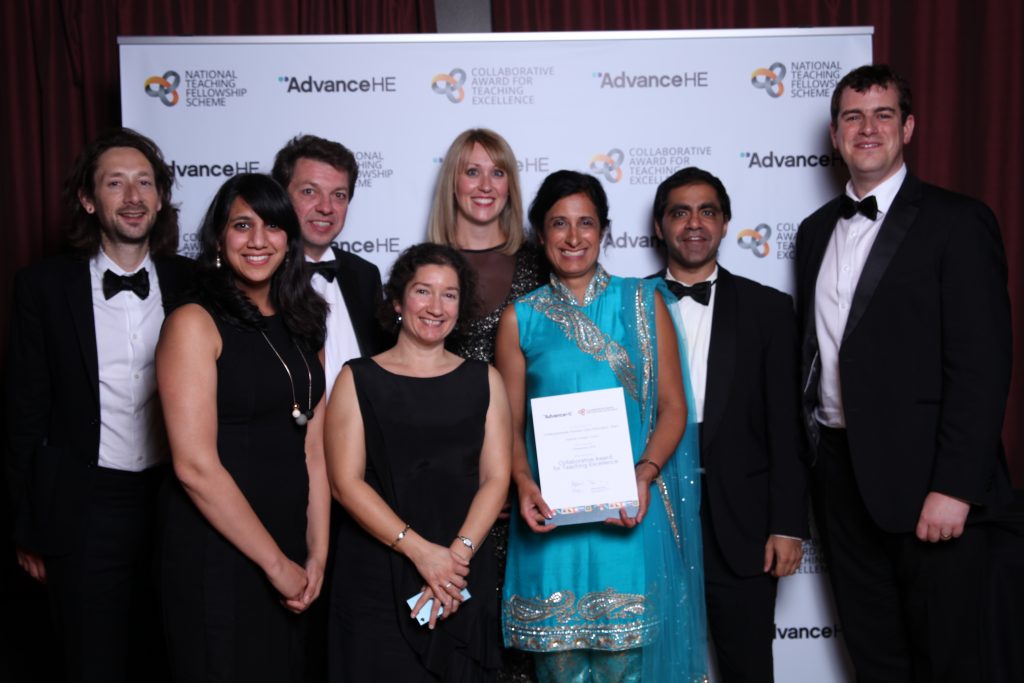From taught to teacher: the dark side of the moon
by Dr Ben Stone
When was the last time you planned a journey? I visited a friend recently; with just an address I found the quickest route, adjusted for traffic and was acquainted with their garden gnomes before I heard a single beat of my “Driving tunes” playlist. Now imagine planning a journey; you can visualise how the destination will look, but you’ll only know for sure once you arrive. The dark side of the moon.
Everyone has heard the outdated adage of medical education: “see one, do one, teach one”. The gap between see and do is noticeably palpable, principally as you walk away from your first cannulation with a blood-stained shoe and still-shaking hand. Can the second gap be so large? It can’t require as much shoe polish.
I joined the Department of Primary Care and Public Health at Imperial College London in early December 2018, the second rotation of my Foundation Year 2. Days before, on a busy medical post-take round, I made a prescribing error. I reflected: what could I do to prevent this in future? Following a slightly protracted e-portfolio entry: Eureka! In my new role, I will have the time, audience and resources to develop a prescribing safety session for medical undergraduates. Inception, albeit with less DiCaprio. The destination is set, but why there?

Performing a literature search is familiar: big studies, national guidelines and a few slightly blurry pdf versions of old books. Maybe I spent some time updating the “Study tunes” playlist. There was a lot of value in discussing my early findings with colleagues, especially as they are too kind to tell me they have work of their own. Soon, I constructed a glimmering evidence-based educational proposal, presenting it proudly to my supervisor. Of course, I’m sure I wouldn’t have overlooked the small matter of educational theory.
It can be tempting to skim a stone across the literary ocean of medical education, but without full immersion my session lacked structure and substance. Has your topic been taught before? How has your topic been taught? Why is your selected teaching style appropriate? Asking these questions is one of the hardest steps, but there are many excellent Imperial College courses designed to hold your hand as you dip your toes (see links at the bottom of the article). With their help, my stage was set, my proposal complete. It was time to plan.
The, hopefully not copyrighted, mnemonic of AILMENTS is the ABCDE of lesson planning:
- Aim: the overarching goal of the session – what will I achieve?
- Intended Learning Outcomes: often an afterthought, but the lifeblood of a session from aim to evaluation. My greatest appreciation of verbs since Year 3 literacy.
- Learning needs analysis: fine tuning the contextual pitch, somewhere between astrophysics and sucking eggs. I performed a quick online survey ahead of time, much to the delight of my future audience.
- Methods: the fruit of your literature search. What will I do? What will I use? You do realise you will have to write all those complex clinical cases now?
- Evaluation: “how likely were you to give a 5 if the presenter was nice and you didn’t fall asleep?” I found that evaluation was integrated throughout a session, not just a feedback form at the end.
- Next steps: this can range from 200 page guideline to a curriculum required e-learning module, but I found it interesting, hopefully they may do too.
- Tests/assessments: Nothing demonstrates enlightenment like a pop quiz! I had to write these questions too.
- Summary: what was that all about again?
With some flesh on the bones, my lesson was coming to life. But like a fleshy skeleton or cake without icing, the final epidermal layer of planning pulls everything together.
It does not take long to realise the logistics involved. Do you have a room? Do you have a speaker? Did you want to show a presentation? Have you got the link ready for that video? I’m sure that video worked the last time I used it? Are there enough chairs? Have you made enough print-outs? Have you made your print-outs? Do you have access to a printer? And so on. Whilst I was fortunate to have the help of experienced colleagues and willing volunteers, classic OSCE/PACES practice with a trusty squadron of stuffed animals could iron out a few creases. My materials were ready. I felt prepared.
The dark side of the moon.



